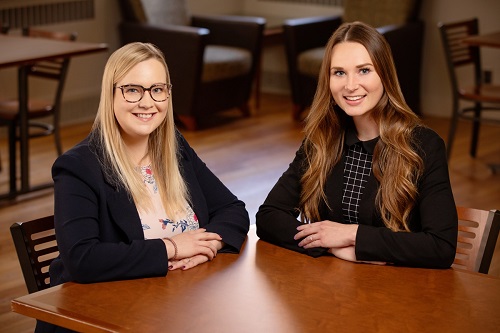“Oral cancers can cause pain, dry mouth, difficulty swallowing, food tasting bland, and extreme weight loss,” said Kalika Sarma, MD, “But advances in care and research help preserve a patient’s ability to speak and eat, making treatment easier.”
Patients who eat foods high in antioxidants and other micronutrients prior to diagnosis may reduce their risks of developing chronic nutrition impact symptoms up to one year after being diagnosed with head or neck cancer, according to a recent study led by researchers at the University of Illinois.
Anna Arthur, PhD, a oncology research dietitian at Carle Cancer Center and an assistant professor, Sylvia D. Stroup Scholar of Nutrition and Cancer at Illinois, and Sylvia Crowder analyzed the dietary patterns of 336 adults with newly diagnosed head and neck cancers and these patients’ problems with eating, swallowing and inflammation of the digestive tract. This painful inflammatory condition, called mucositis, is a common side effect of radiation treatment and chemotherapy.
“We’re fortunate to have access to key research through continued partnerships with top-notch organizations like the Cancer Center at University of Illinois,” Kendrith Rowland, MD, said. “With their offices recently co-located within the Carle’s research facilities, we’re more closely aligned and can continue to make strides in caring for patients.”
Crowder said the mitigating effects of a healthy diet were particularly significant in people who had never smoked and in patients who were underweight or normal weight at diagnosis. Crowder is a research fellow in the Cancer Scholars for Translational and Applied Research program, a collaborative initiative of the University of Illinois and Carle Foundation Hospital.
“We are partnering to create a great resource – researchers – who have a solid understanding of both clinical needs and the science. As a result, we’re able to better coordinate and bridge efforts between both organizations with great results,” said Jennifer Eardley, PhD, Carle vice president of Research.
While previous work established that the presence of nutrition impact symptoms is associated with decreased food intake and weight loss, no studies have examined how pre-treatment dietary intake may influence the presence of these symptoms later in the course of the disease.
In the early 2000s, researchers hypothesized that consuming antioxidant supplements might protect patients’ normal cells from damage during radiotherapy, enabling them to better tolerate treatment and higher dosages.
Prior research by Arthur, also a professor of food science and human nutrition at the University of Illinois, indicated eating a diet of whole foods abundant in antioxidants and phytochemicals improved recurrence and survival rates in head and neck cancer patients.
Patients completed a questionnaire on their diet, tobacco and alcohol use, and quality of life prior to starting cancer treatment and again one year after. Patients reported and rated any pain or difficulty chewing, tasting or swallowing foods and liquids.
Those who ate healthier at diagnosis reported fewer problems with chewing and swallowing one year after treatment, the scientists found.
“While the origin and development of nutrition impact symptoms are complex and varied, they generally share one common mechanism – cell damage due to inflammation,” Arthur said. “The prudent dietary pattern has the potential to reduce inflammation and reduce these symptoms.”
The scientists hypothesized some patients may begin eating healthier following their cancer diagnosis, potentially counteracting the pro-inflammatory effects of their previous dietary habits.
Reverse causation was possible too, they hypothesized – as patients’ lack of symptoms may have enabled them to consume a broader range of foods, including healthier whole foods, before doctors discovered their cancer.
Categories: Redefining Healthcare
Tags: Arthur, cancer, Crowder, head, Illinois, neck, nutrition, Research, Rowland, Sarma
